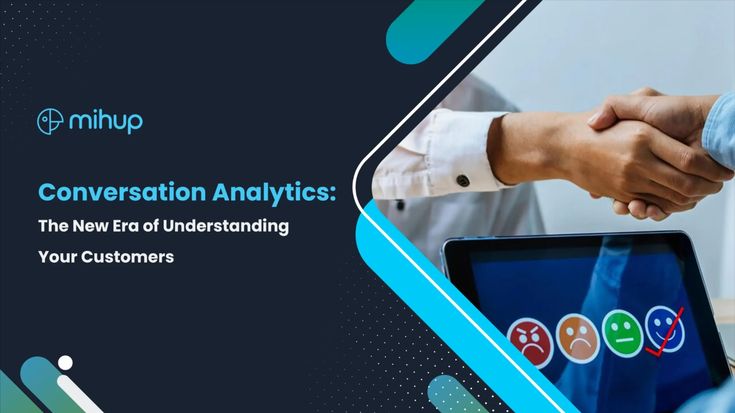
The Power of Predictive Analytics in CRM
Predictive analytics is transforming Customer Relationship Management (CRM) by providing businesses with the ability to anticipate customer needs, optimize marketing strategies, and enhance sales performance. By leveraging vast amounts of data and advanced algorithms, predictive analytics offers actionable insights that drive better decision-making and create more personalized customer experiences. This article explores the profound impact of predictive analytics on CRM and how it empowers businesses to stay ahead in a competitive landscape.
Understanding Predictive Analytics
Predictive analytics involves the use of statistical techniques, machine learning algorithms, and data mining to analyze historical data and make predictions about future events. In the context of CRM, predictive analytics examines customer data to forecast behaviors, preferences, and trends. This foresight enables businesses to tailor their strategies to meet future demands and improve overall customer satisfaction.
Key Benefits of Predictive Analytics in CRM
- Enhanced Customer Insights
Predictive analytics helps businesses gain a deeper understanding of their customers by identifying patterns and trends in customer behavior. By analyzing data such as purchase history, browsing behavior, and social media interactions, companies can segment their audience more effectively and create targeted marketing campaigns. This level of insight ensures that marketing efforts resonate with the right audience, increasing the likelihood of conversion.
- Improved Lead Scoring
Lead scoring is a critical aspect of sales, allowing businesses to prioritize potential customers based on their likelihood to convert. Predictive analytics refines this process by assessing various factors, such as engagement levels, demographic information, and past interactions. This data-driven approach to lead scoring helps sales teams focus their efforts on high-quality leads, reducing the time and resources spent on less promising prospects.
- Personalized Customer Experiences
In today’s market, customers expect personalized experiences. Predictive analytics enables businesses to deliver on these expectations by anticipating individual customer needs and preferences. For instance, by analyzing a customer’s purchase history and browsing behavior, a business can recommend products or services that align with their interests. This personalization fosters stronger customer relationships and boosts loyalty.
- Optimized Marketing Strategies
Predictive analytics provides valuable insights into which marketing strategies are most effective. By analyzing data from past campaigns, businesses can identify what worked and what didn’t, allowing them to optimize their future efforts. This continuous improvement cycle leads to more efficient use of marketing budgets and higher return on investment (ROI).
- Churn Reduction
Customer retention is crucial for sustained business growth. Predictive analytics can identify early warning signs of customer churn by analyzing behavior patterns that typically precede a customer leaving. Armed with this knowledge, businesses can proactively address potential issues, offer targeted incentives, and improve customer service to retain valuable clients.
- Sales Forecasting
Accurate sales forecasting is essential for effective planning and resource allocation. Predictive analytics enhances the accuracy of sales forecasts by considering a wide range of variables, such as historical sales data, market trends, and economic indicators. This precision helps businesses set realistic sales targets, manage inventory more effectively, and allocate resources where they are needed most.
Applications of Predictive Analytics in CRM
- Customer Segmentation
Predictive analytics allows businesses to segment their customer base into distinct groups based on shared characteristics and behaviors. This segmentation enables more targeted marketing efforts and helps businesses understand the unique needs of different customer segments.
- Cross-Selling and Upselling
By analyzing customer purchase history and preferences, predictive analytics can identify opportunities for cross-selling and upselling. For example, if a customer frequently purchases running shoes, the CRM system might suggest complementary products like athletic apparel or fitness accessories.
- Campaign Effectiveness
Predictive analytics can evaluate the effectiveness of marketing campaigns in real-time, providing insights into which elements are driving engagement and conversions. This allows businesses to adjust their strategies on the fly and maximize campaign impact.
- Customer Lifetime Value (CLV)
Predictive analytics helps businesses estimate the lifetime value of a customer by analyzing past behavior and predicting future interactions. This metric is crucial for understanding the long-term value of customer relationships and informing investment decisions.
Conclusion
The power of predictive analytics in CRM lies in its ability to transform vast amounts of data into actionable insights. By harnessing these insights, businesses can enhance customer experiences, improve lead scoring, optimize marketing strategies, and increase sales efficiency. As predictive analytics continues to evolve, its integration with CRM systems will become even more essential for businesses striving to stay competitive and meet the ever-changing needs of their customers. Embracing predictive analytics is not just a technological advancement; it’s a strategic imperative for future success.